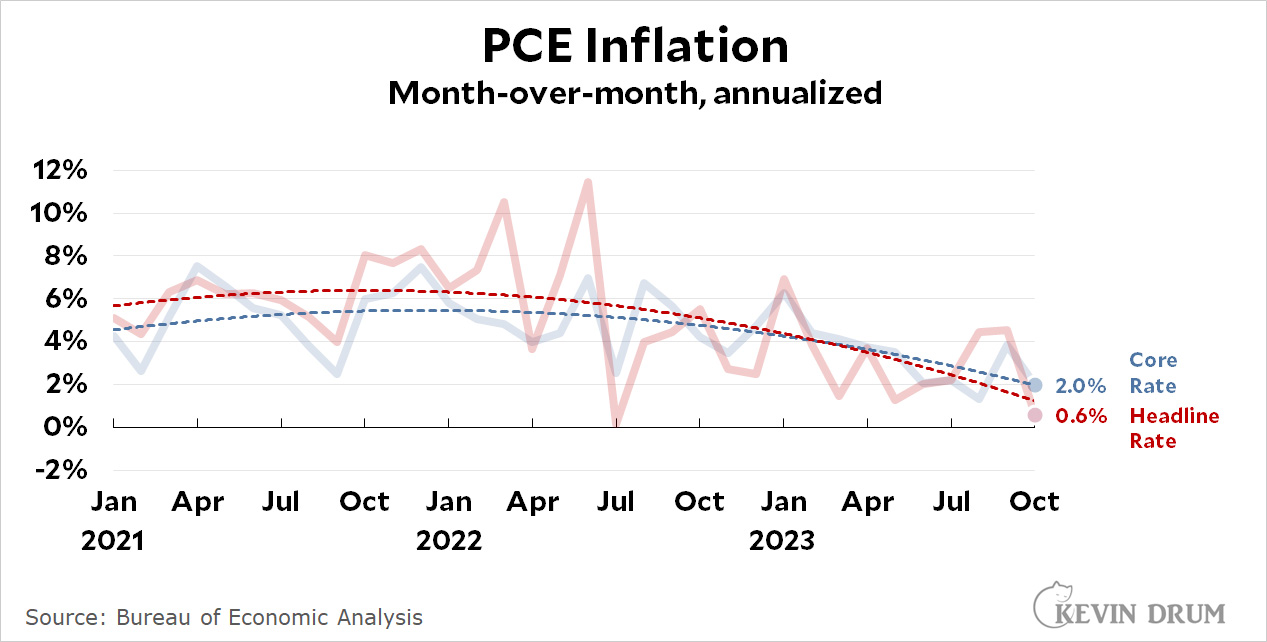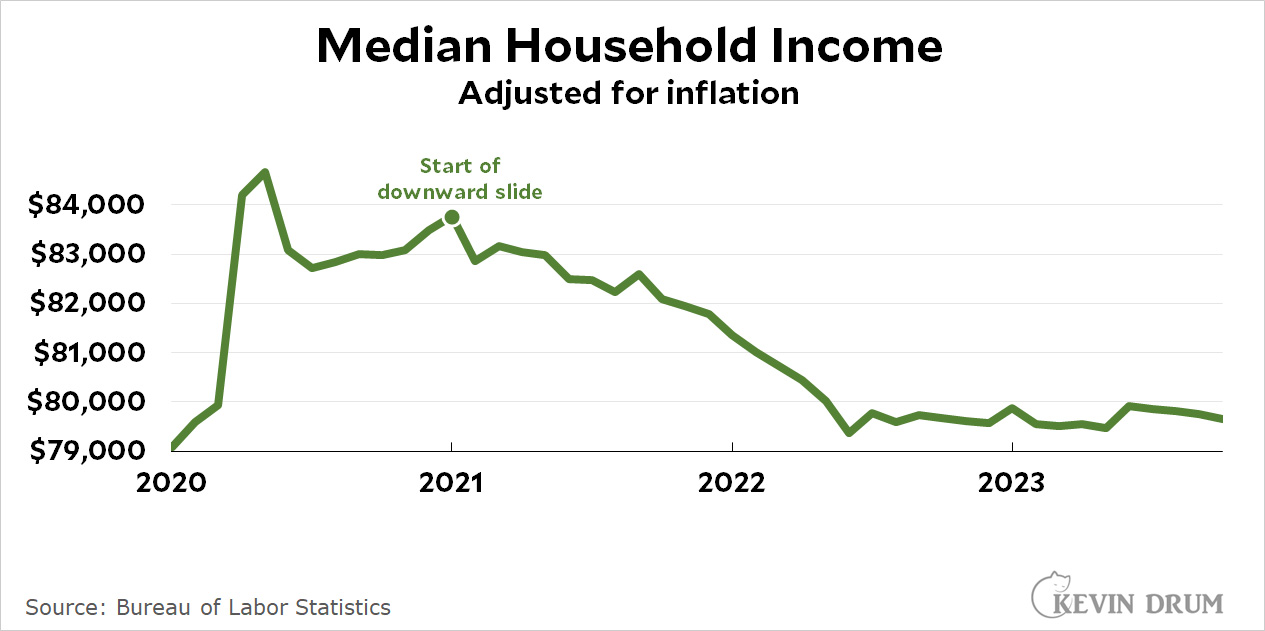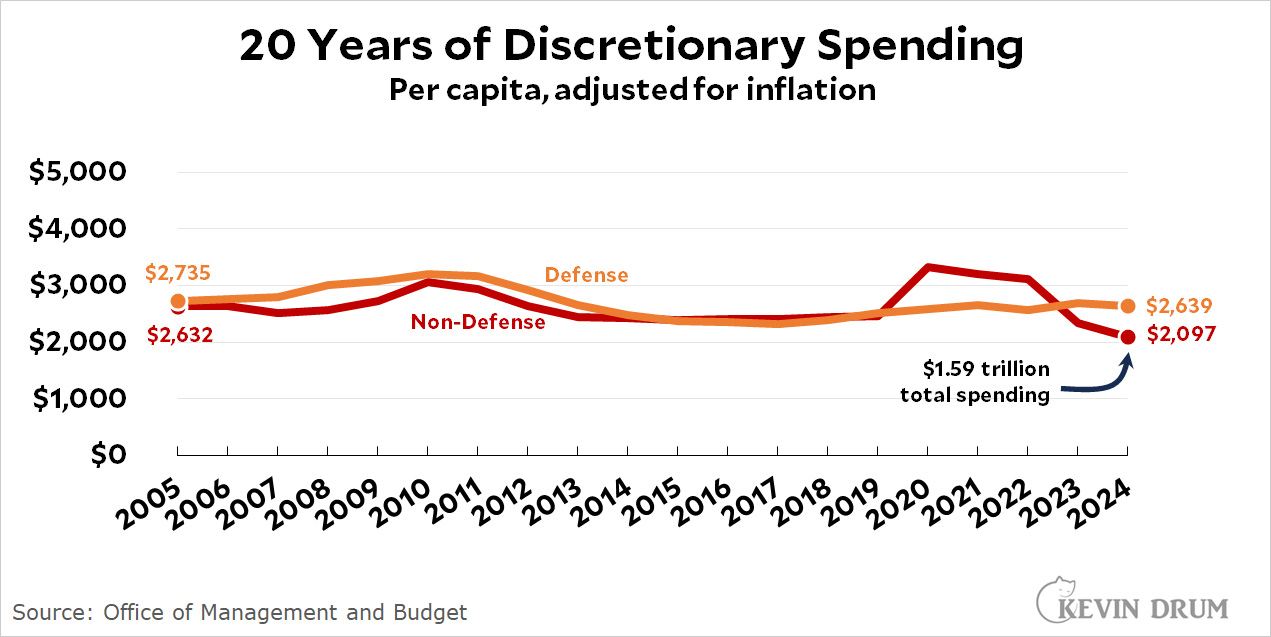I watched the first half hour of tonight's debate between California governor Gavin Newsom and Florida governor Ron DeSantis, but that was all I could take. So I have no idea who "won" or "lost."
But just to set the record straight on something I think Newsom didn't make clear enough, it really is true that taxes in California aren't generally higher than in Florida. Florida has higher taxes on the poor and California has higher taxes on the rich:
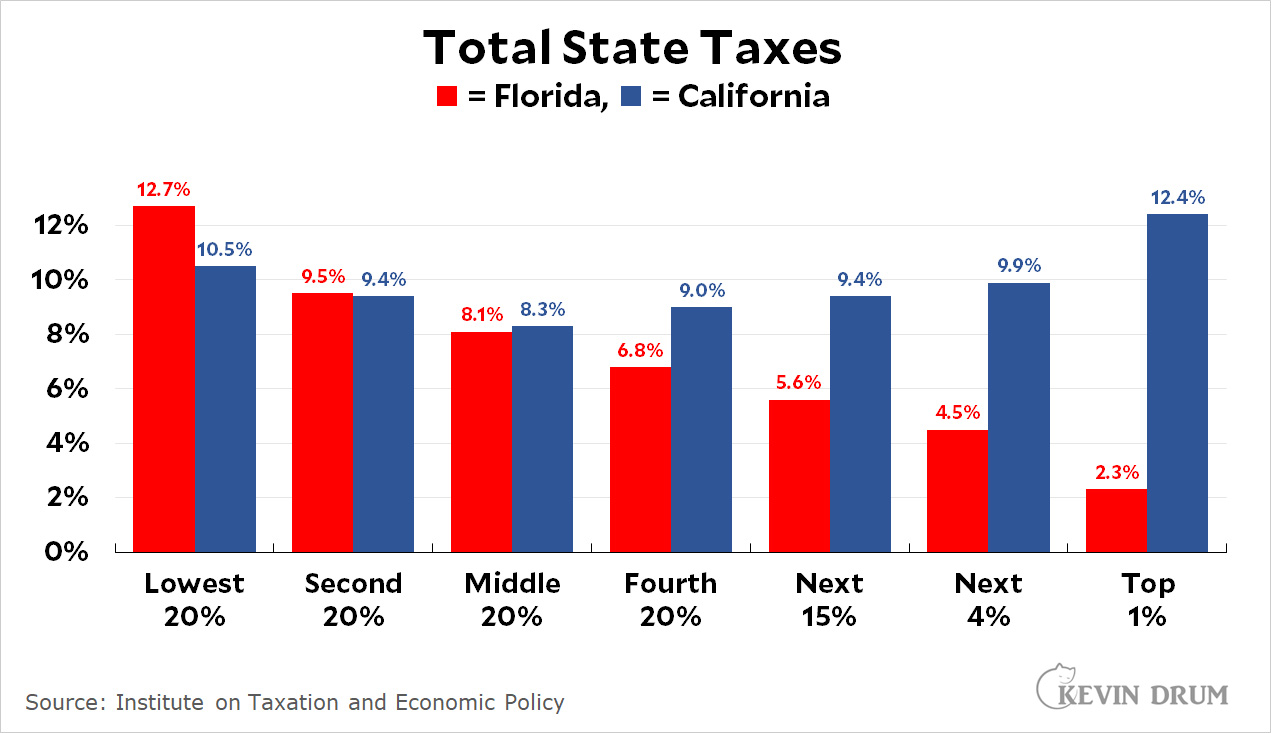 The working poor are better off in California. The working and middle classes are about the same in both states. The upper middle class and the affluent are taxed less in Florida.
The working poor are better off in California. The working and middle classes are about the same in both states. The upper middle class and the affluent are taxed less in Florida.
The reason for this is that California's income tax is very progressive. The poor, on average, pay negative tax, and the next two cohorts pay about 1%. It's only for the wealthy that California's income tax becomes significant:
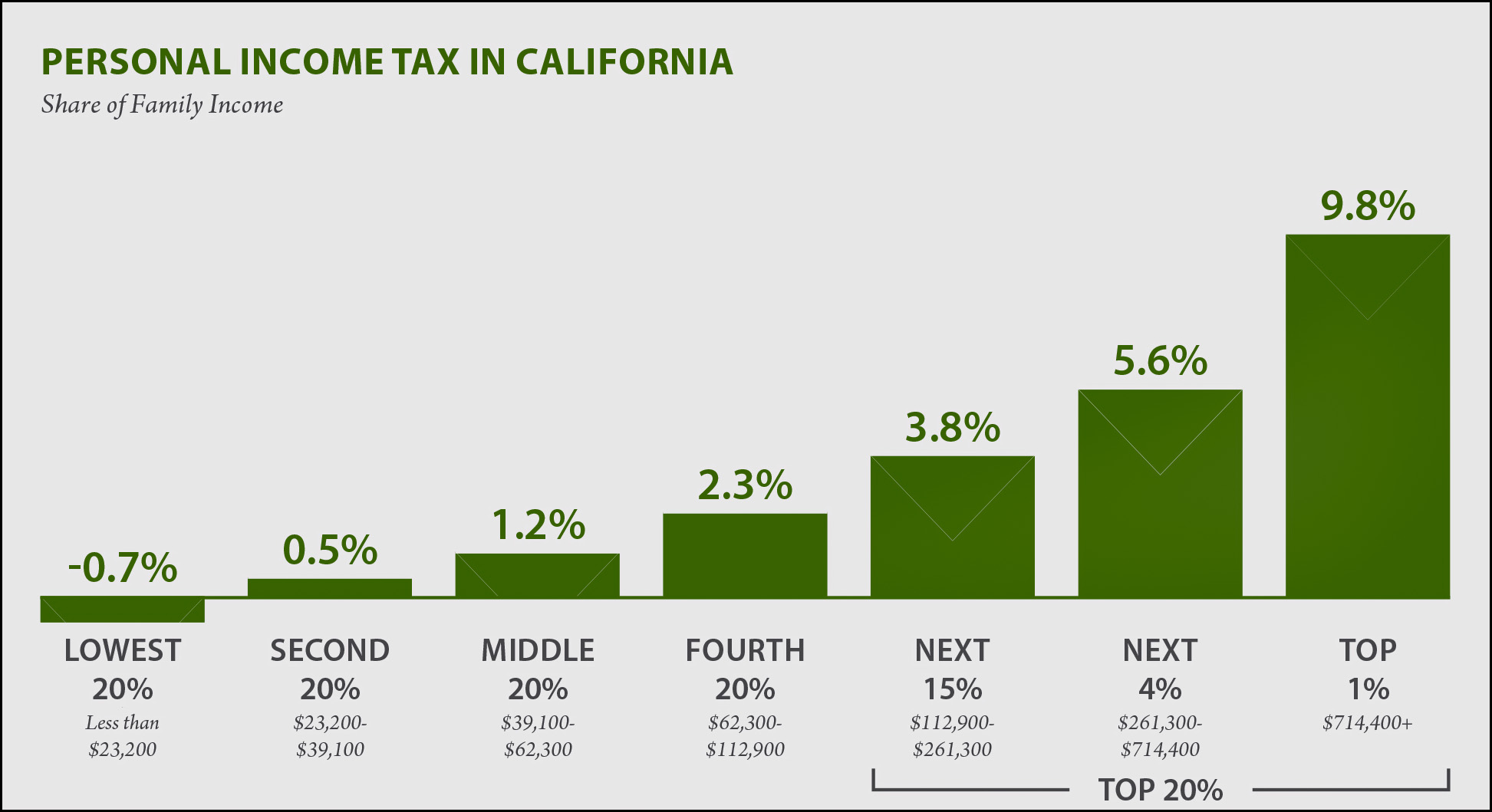 Long story short, the tiresome debating point about people leaving California has nothing to do with taxes. California no longer attracts a lot of people because we don't build enough new housing, which has made it expensive to live here. That's it.
Long story short, the tiresome debating point about people leaving California has nothing to do with taxes. California no longer attracts a lot of people because we don't build enough new housing, which has made it expensive to live here. That's it.



